Electrical Engineers, technicians and technologists in the industrial, consulting, and utility fields involved in design, operation and maintenance who require knowledge of electrical system protection techniques.

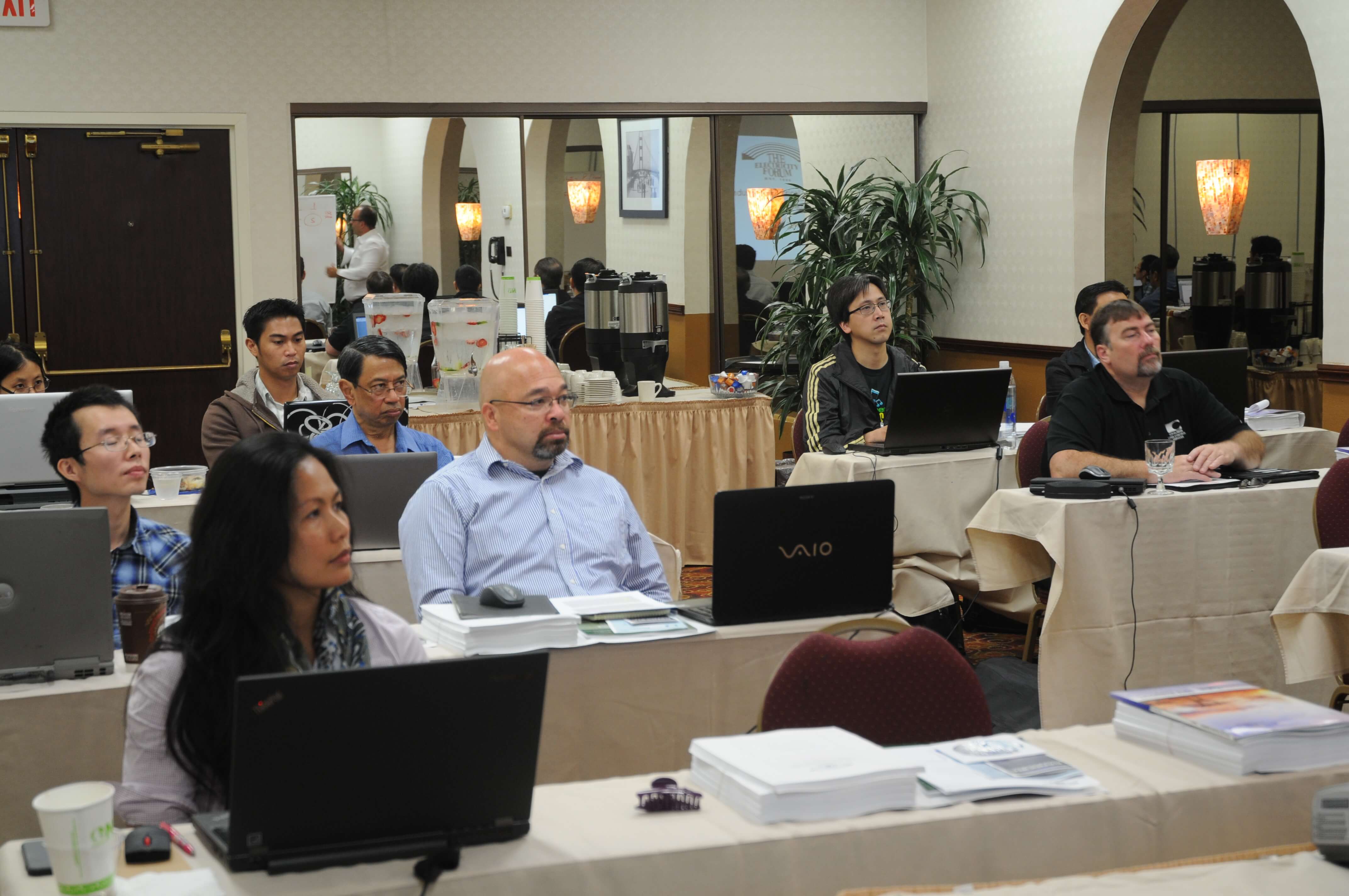

This 12-Hour live online Power System Protection Training course will provide a practical understanding of protective device applications and protective relay schemes for electrical power systems and equipment.<
This 12-Hour ive Online Power System Protection and Coordination Training Course Will Provide A Practical Understanding of Short Circuit Currents and Protective Device Applications for Electrical Power Systems And Equipment.
The primary objective of a power system protection and coordination study is to protect the system in case of any abnormal operations, maintain continuity of service by restricting the extent and time of disruption and reducing damages to the system. It is impossible to avoid fault due to natural events, equipment failure, human errors etc.., however, a proper system study can help minimize the impact to the facility operations. A good maintenance practice also helps ensure that the system performs at its best and eliminates faults and outages associated with equipment failure
A severe short circuit fault in your power system can have catastrophic consequences. This makes short circuit study training fundamental. Fault levels vary from system to system, and location to location. Our training will help you to calculate the maximum available short circuit current at various points throughout the system. Calculated values are then used to evaluate the application of protective devices, and to develop circuit breaker trip settings, which is part of a Power System Coordination Study. A properly coordinated protection system isolates portions of the system affected by a fault or other disturbance as quickly as possible with less impact on the rest of the distribution.
The reliability and safety of electric power distribution systems depend on accurate and thorough knowledge of short-circuit fault currents that can be present, and on the ability of protective devices to satisfactorily interrupt these currents. Knowledge of the computational methods of power system analysis is essential to engineers responsible for planning, design, operation, and troubleshooting of distribution systems. Such knowledge is necessary to determine the interrupting requirements of circuit breakers and fuses, the mechanical and thermal requirements of devices exposed to fault currents, and to perform protection and coordination studies. A full and complete understanding of short-circuit fault currents is essential for the proper and safe coordination of power system coordination and arc flash mitigation.
COURSE OBJECTIVES
To provide a practical understanding of protective device applications and protective relay schemes for electrical power systems and equipment. Refresh your knowledge of the basic industrial system protection techniques including fault analysis and overvoltage assessment. Develop relay settings and thoroughly understand the philosophy of protective systems. Study actual cases illustrating various techniques in present use and highlighting approaches used by experienced system designers. Enhance your experience with power system protection problems generally faced, and solutions successfully adopted, by industry
Power System Protection and Coordination of various electrical equipment and apparatus requires a good understanding of phase and ground short circuit currents, detection, and safe clearing of the faulted equipment. Large or small, each and every industrial, commercial and institutional organization needs to understand how to protect their investment in their electric power systems. To do this properly, companies need to know how to perform an electrical protection analysis of all the parts of their power system: such as analyse fault data, come up with protection settings, then get all of the components of their plant to be controlled by the operators who are responsible for integrating their power system into communication and data acquisition modes.
Engineers who need a comprehensive understanding of the challenges and solutions for protecting electrical power systems should attend this course. Students will learn the essentials of electrical protection design, relay coordination, and fusing fundamentals, breaker fundamentals.
COURSE OBJECTIVES
The Power System Protection And Coordination Engineering Training Course:
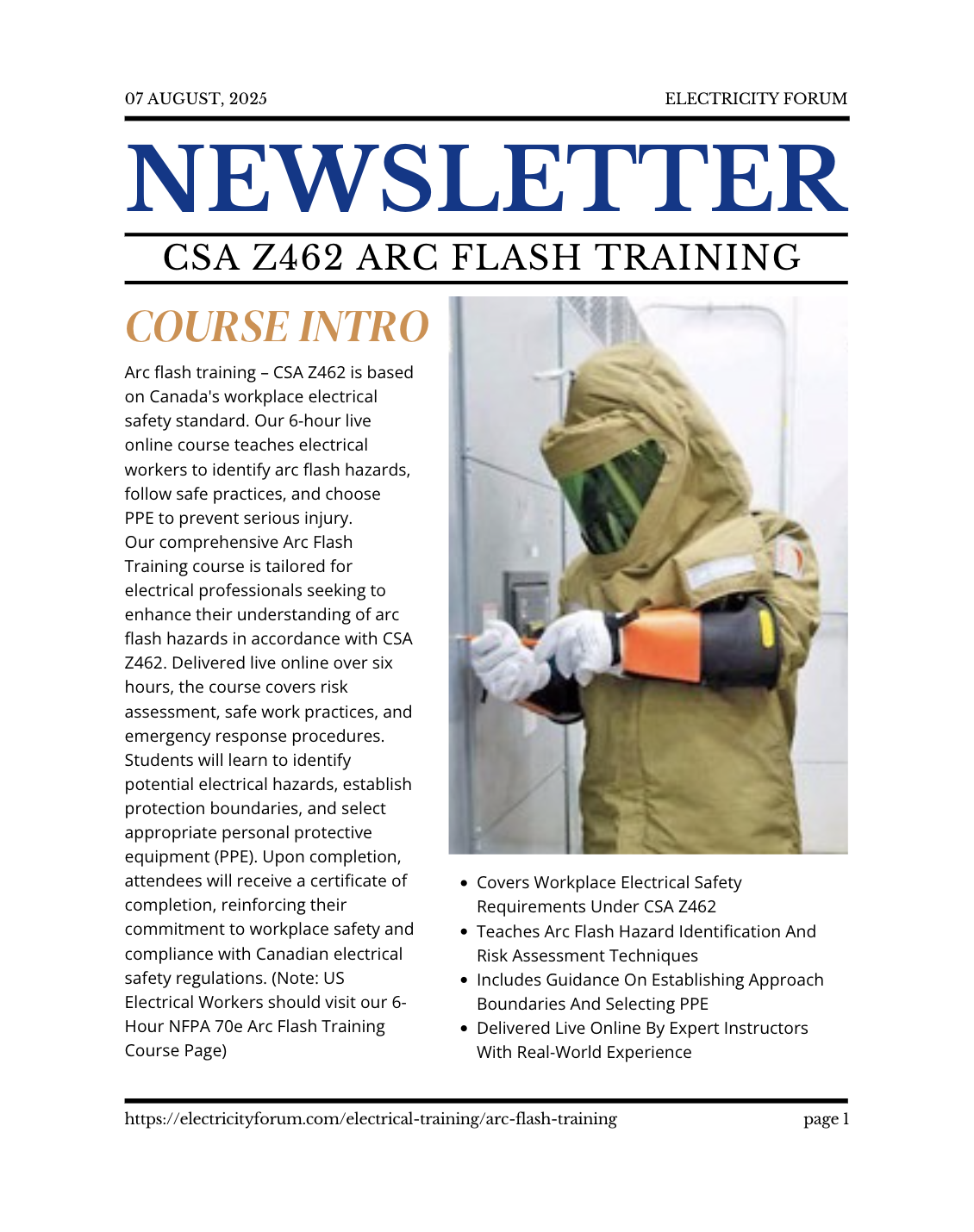
Electrical Engineers, technicians and technologists in the industrial, consulting, and utility fields involved in design, operation and maintenance who require knowledge of electrical system protection techniques.
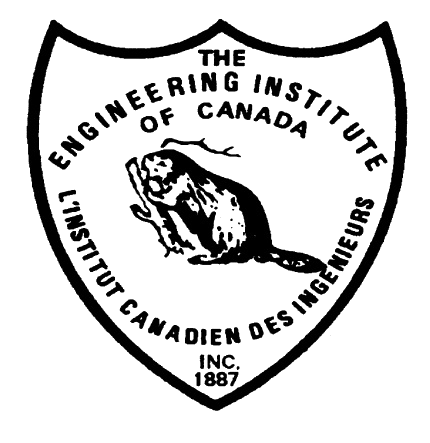
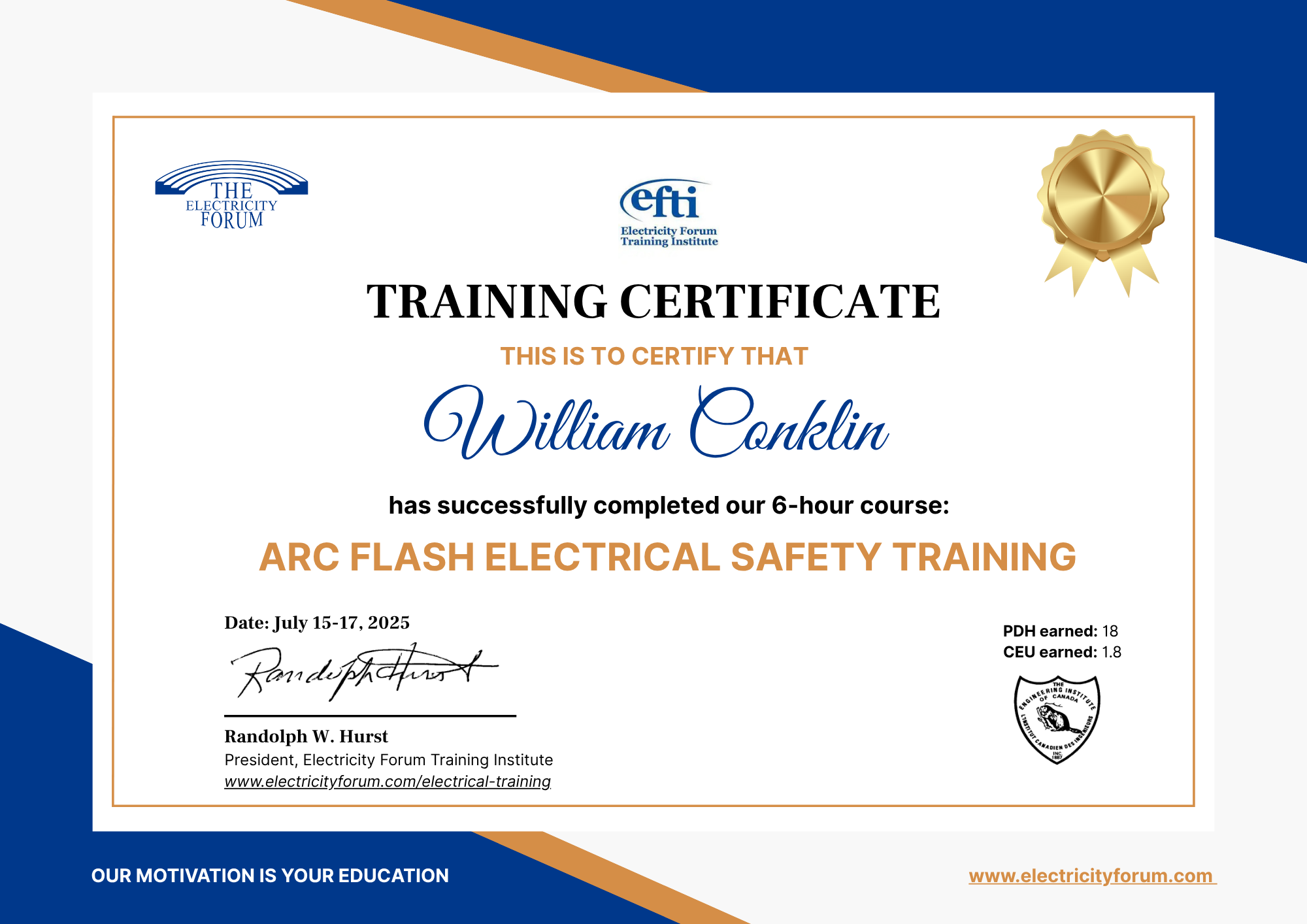
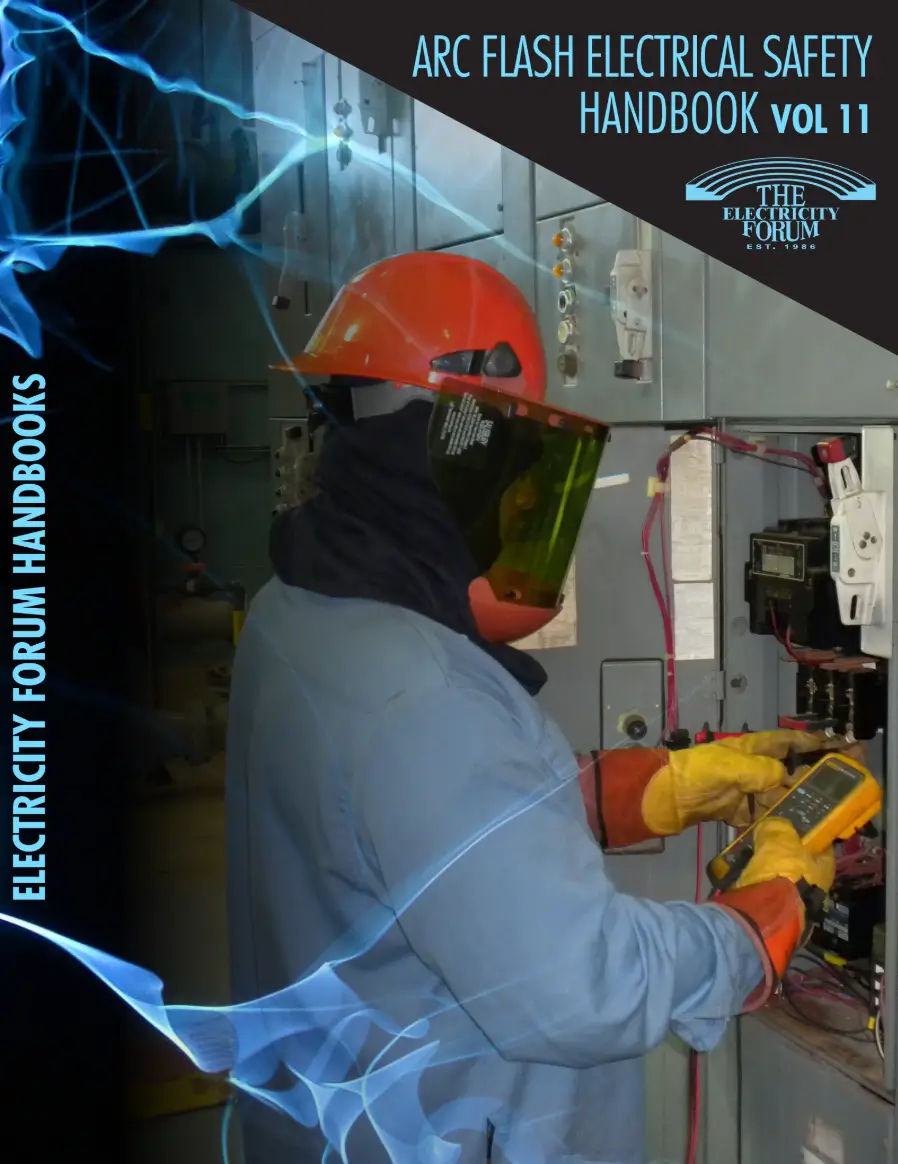



Power System Protection and Coordination Training
DAY ONE
Power System Protection
Short Circuit Theory and Analysis
System Design Considerations:
Electrical Equipment Ratings:
Switchgear Ratings & Selection Criteria:
Transformer Protection
Generator Protection
Conductor and Bus Protection:
Motor Protection
DAY TWO
Power System Coordination
Overcurrent Coordination
Fuse Characteristics:
LV Circuit Breaker Characteristics:
Time overcurrent relays
COURSE TIMETABLE
Both days:
Start: 10:00 a.m. ET
Finish: 4:30 p.m. ET

Fill out the form below with your name and email address.
Check your email for a message with a link to your $50 discount coupon.
Use the coupon code when you sign up for the Advanced Electrical Safety Training course to save $50 off the regular price.

Register 3 delegates at the full price of $249 each and get the 4th registration free! Perfect for companies, safety departments, and teams looking to train multiple employees at once.

Whether you choose live online or in-person instruction, our electrical training can be customized to your needs and delivered to your team at one or multiple locations.
Our instructors will work with you to assess your team's skills and tailor the training to match your requirements.
Complete this handy form and I will send you a FREE written Quotation on any electrical training you need! Or send me an email and I will contact you to discuss your electrical training requirements Today!
Explore 50+ live, expert-led electrical training courses – interactive, flexible, CEU-certified.
Download Catalog
Get detailed information about this course in our comprehensive brochure.
Download Brochure (PDF)Register 3 delegates at the full price of $249 each and get the 4th registration free! Perfect for companies, safety departments, and teams looking to train multiple employees at once.
Explore our comprehensive training programs and find the perfect course for your professional development.
